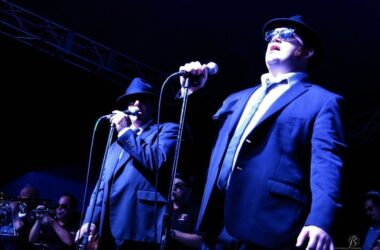 By Gene Policinski
By Gene Policinski
First Amendment Center vice president/executive director
You may never have thought of the center part of your car’s bumper as an opportunity for multi-tasking or creativity — or as a free-speech battleground — but it is.
For millions of Americans, that’s exactly what those enigmatic messages on license plates are. So-called “vanity” and “specialty” plates let us express ourselves or show support for a cause or organization.
EYELUVU or a plate that asks us to “Support Schools” would seem harmless enough, just another way that car-obsessed citizens can customize their ride — communicating even as they commute.
But sometimes people’s creativity goes beyond what state officials will approve: A cruder-but-abbreviated variation of “stuff happens” won’t pass muster. And in some states the bans cover references to deities, social causes — and, according to author Stefan Lonce, even the sentiment GETOSAMA, a vanity plate that New York officials want to revoke.
Most recently, the South Dakota Department of Revenue and Regulation proposed legislation to repeal all references to vanity plates. Director Debra Hillmer said the difficulty of tracking and examining all plate proposals wasn’t balanced by the small fees received, particularly because people are becoming so creatively “vulgar.”
From a First Amendment point of view, the issue of personalized plates seems a Dickensian moment: The best and worst of times.
Best in that for a minimal-to-manageable cost, we automobile owners get to express ourselves to fellow citizens in a kind of mobile public square – showing support for our school, our team, our cause or delivering some personal statement.
Worst in that government officials get to decide, often using an arcane and onerous set of rules, what is “proper” even when political speech — generally the most-protected form of personal expression — is involved, and who gets to speak.
You might be tempted to ask “what’s left?” given the list of subjects Alabama won’t permit: Out-of-state colleges and universities; private businesses, business organizations or commercial entities of any type; K-12 public and private schools; junior colleges and technical schools; groups within high schools, junior colleges, universities and technical schools, such as band or athletic boosters; unions, political organizations, religious organizations, groups that promote racial or social disharmony; or public officials.
State laws ban words or combinations that would denigrate racial or religious groups, promote illegal activity or are profane. Occasionally officials get creative themselves. In Massachusetts, lawmakers block slogans that are legible via a rear-view mirror, as well as any “code which only a small segment of the community may be able to decipher.”
Of more constitutional concern is when words on plates get caught up in political tiffs — most often, when legislatures choose to permit “Choose Life” or similar anti-abortion messages while ignoring or rejecting a similar pro-choice plate option. Officials argue that such a one-sided approach is permissible as “government speech,” and that the alternative would be to require opposition license plates for such hallmark sentiments as “America the Beautiful.”
Common sense would say fair play for all. But the difficulty of translating common sense onto a small metal tag — for example, puzzling out whether a message is a “code” that only a tiny group can decipher — may lead states to withdraw completely from the personalized-plate market. They might do so despite the loss of revenue to state coffers and the losses to sponsors such as schools, conservation groups and arts organizations that often get a share of specialty-plate fees.
Such a retreat would take away a unique if abbreviated form of free speech — six to eight letters and numbers — that can inform, entertain, puzzle or make us laugh every day.
And that would B-2BAD.
Gene Policinski is vice president and executive director of the First Amendment Center, 555 Pennsylvania Ave., Washington, D.C., 20001. Web: www.firstamendmentcenter.org. E-mail: [email protected].








